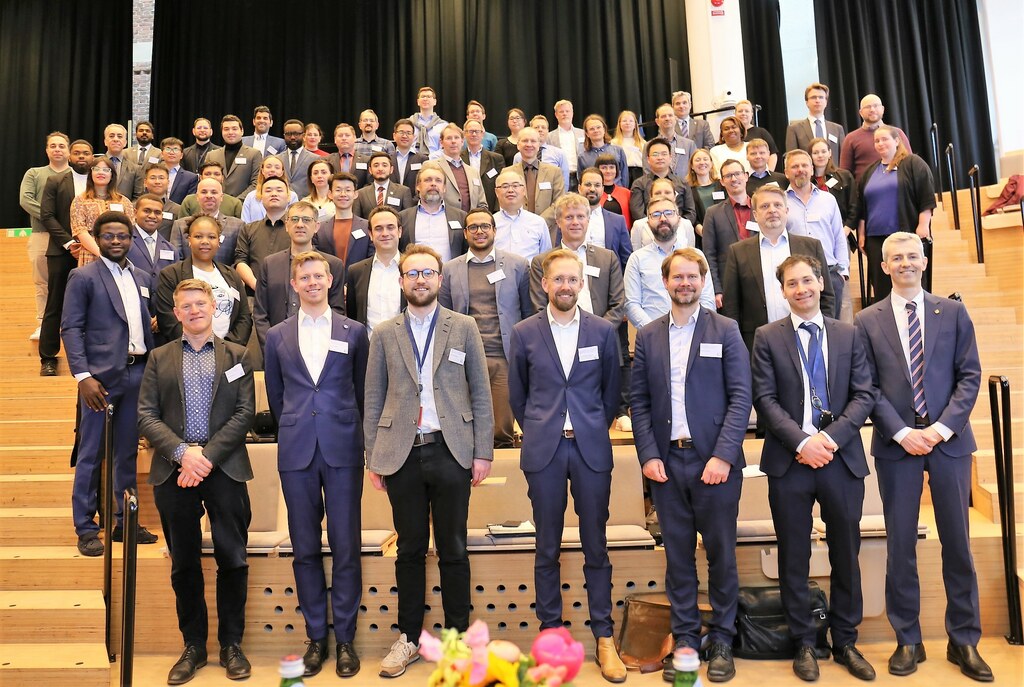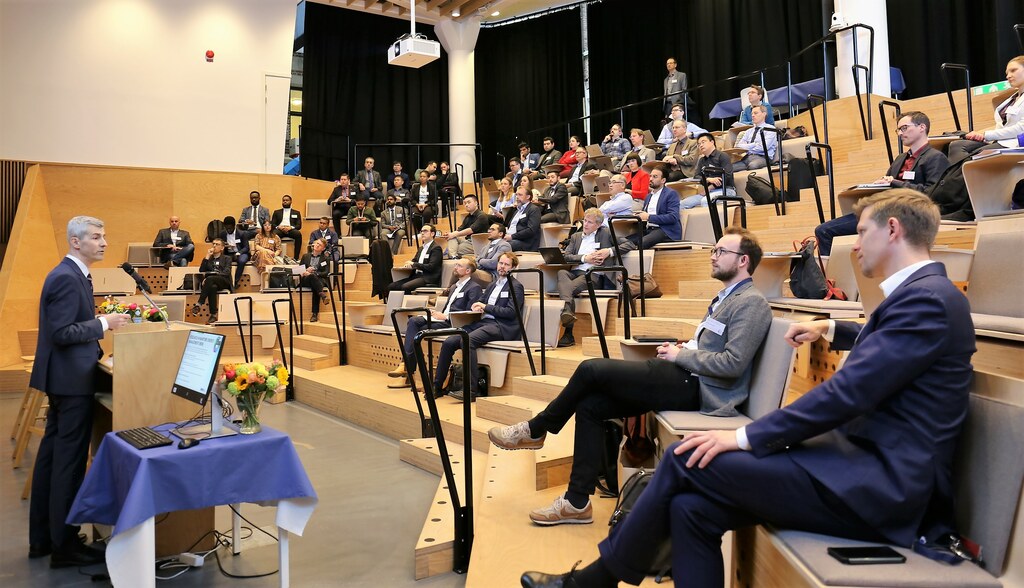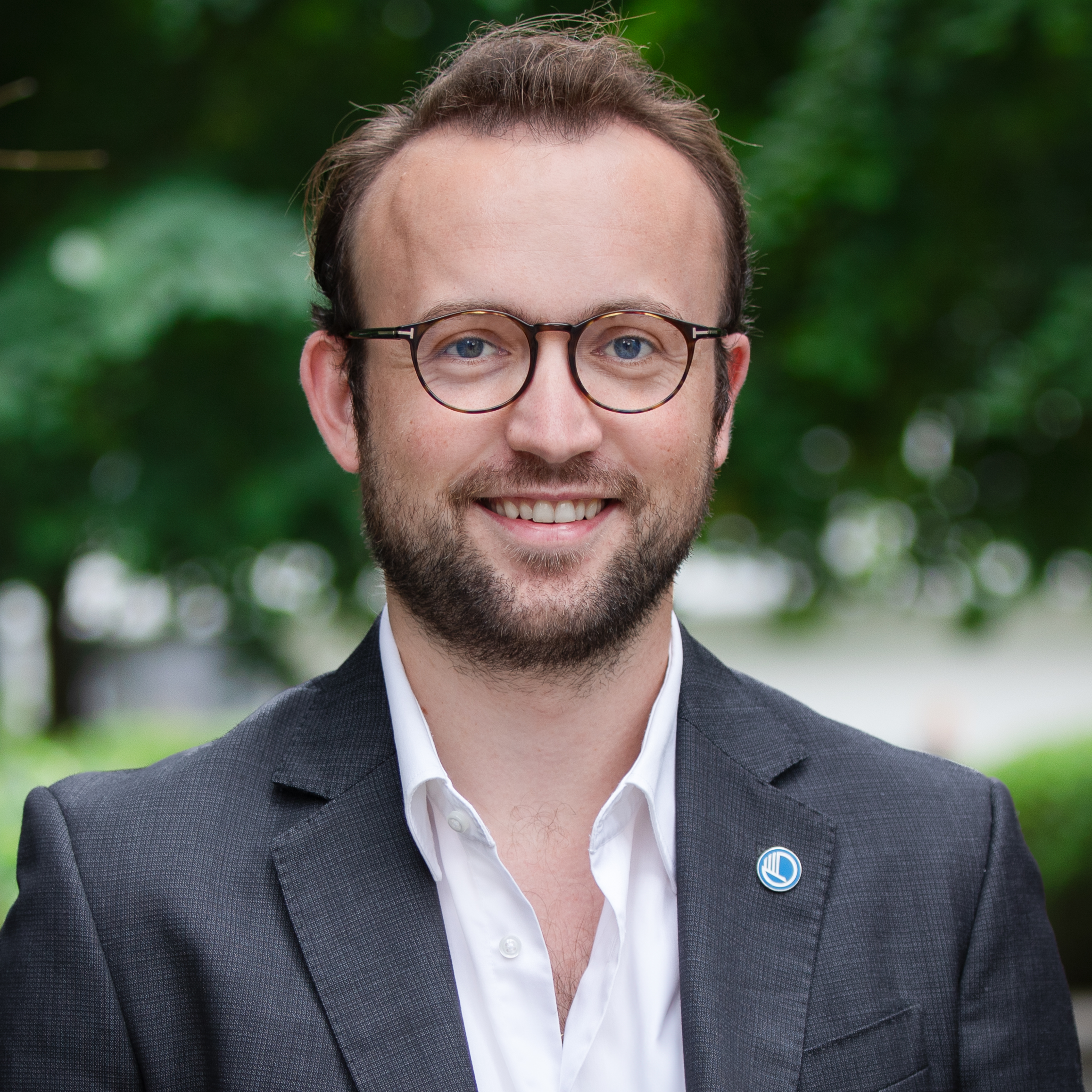
The Nordic Maritime Transport and Energy Research Programme Conference
On 3–4 May, Nordic Energy Research hosted a conference part of the Nordic Maritime Transport and Energy Research Programme, at the World Maritime University in Malmö, Sweden. With more than…
On 3–4 May, Nordic Energy Research hosted a conference part of the Nordic Maritime Transport and Energy Research Programme, at the World Maritime University in Malmö, Sweden. With more than 100 registered attendees, the conference accomplished a great gathering of knowledgeable actors within the marine sector from across the world, which was one of two aims of the event.
The other aim was for the projects HOPE, CAHEMA and AEGIR, that are part of the Nordic Maritime Transport and Energy Research Programme, to present the results of their work. The funded projects have come a long way and are approaching completion, although some finishing touches still remain.

Aykut I. Ölҫer, Director of Research at the World Maritime University, opened the conference.
After being welcomed by Aykut I. Ölҫer, Director of Research at the World Maritime University, and introduced to the programme by Klaus Skytte, CEO of Nordic Energy Research, the three projects showcased their main takeaways respectively, from industrial, financial, technological, and policy points of view.
Policy is key and the Nordics are frontrunners
For example, a key finding within the HOPE project is the essential role of policies. Details in the policy design can be crucial for the prerequisities for different options, not least for hydrogen solutions. Also, from a technical and economic perspective, HOPE finds that fuel cell RoPax vessels seem feasible with right conditions.
The CAHEMA project lifted policy implications too. Since green hydrogen causes minimal emission costs compared to conventional (and even blue) fuels, but at the same time is the most costly marine fuel option, CAHEMA underlines an urgent need to put a cost on carbon emissions to make alternative fuels competitive and accelerate the energy transition of the maritime sector.
When it comes to AEGIR, the project has boosted cross disciplinary understanding and research. However, the involved technologies need to be researched, developed, and upscaled further, with Nordic and European countries in front positions. In fact, the Nordics’ role as frontrunners within the field had been eyeopening within AEGIR.
Access all presentations from the conference via the links below.

Nordic Energy Research would like to thank all speakers, audience members, panelists, and project partners for two lively days of exchanging experiences!
Presentations from the conference
Aykut I. Ölҫer, Director of Research, World Maritime University: Welcome to the conference
Jakob Haugaard, Director at the Danish Maritime Authority: Global regulation for the decarbonization of the maritime industry
Anna Rosenberg, Project Coordinator, Global Maritime Forum: The Nordic Green Ammonia Powered Ships project (NoGaps)
Jari Hyvönen, General Manager, Wärtsilä: Linking research and industry – ammonia and hydrogen-based solutions to marine engines
Eric Baudoin, MAN Energy Solutions: Concepts of ammonia/hydrogen engines for marine application (CAHEMA)
Julia Hansson and Karl Jiven, Swedish Environmental Research Institute: Hydrogen fuel cells solutions in shipping in relation to other low carbon options – a Nordic perspective (HOPE)
Kevin Koosup Yum, SINTEF: Energy demand and cost analysis for a hydrogen fuelled RoPax ferry using design lab framework
Xue-Song Bai, University of Lund; Alessandro Schönborn, World Maritime University; Ossi Kaario, Aalto University; Terese Løvås, Norwegian University of Science and Technology: Towards the use of ammonia in marine engines

